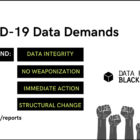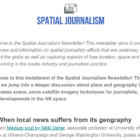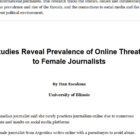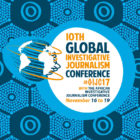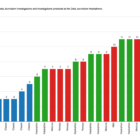This is a research paper that was accepted but not presented at the Global Investigative Journalism Conference 2017 Academic Track, which IJEC organized and covered.
Anastasia Valeeva from the Reuters Institute for the Study of Journalism at Oxford researched the culture of data reporting in Russian investigative outlets through interviews, case studies and qualitative content analysis.
“In this study, I wanted to show how open data is used for investigative storytelling in Russia, and what are the barriers that prevent journalists from embracing it. To answer these questions, the study draws on a combination of semi-structured interviews with investigative journalists and open data experts, case studies, and qualitative content analysis. In the final section, I discuss the existing barriers and provide guidelines on how to make investigative data journalism stronger in Russia.”
